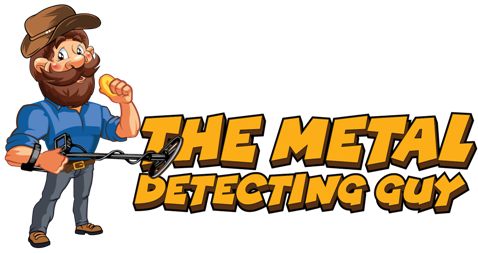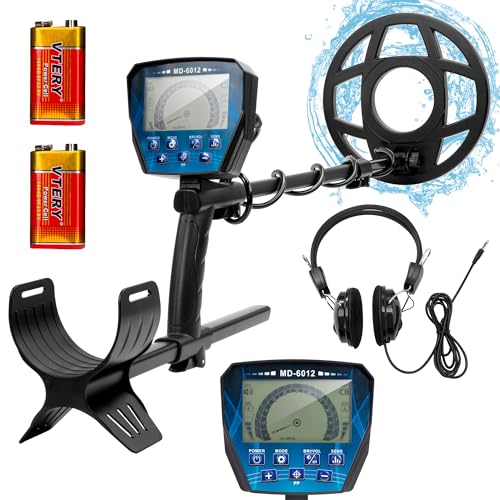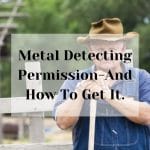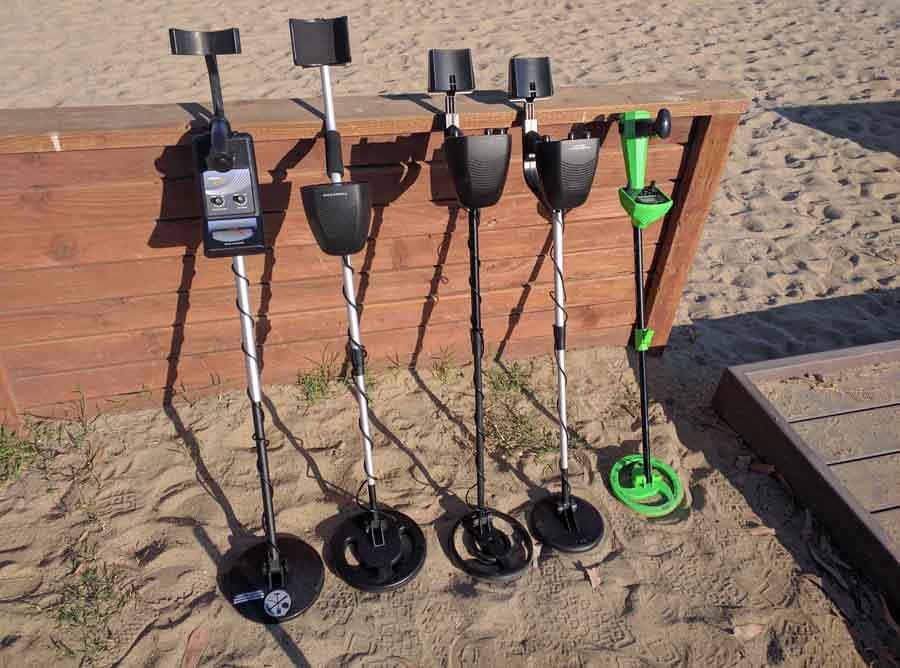
Metal detecting is an exciting hobby that any individual can start. Whether you are looking to explore your own backyard for lost treasure, or have a hunch of something buried nearby in the ground; metal detectors offer thrill and mystery while also teaching patience, responsibility, focusing skills, and the ability to make new discoveries. Here we will be looking at the best metal detectors for beginners.
A metal detector is a device that scans for items under the surface by using electromagnetic fields which detect differences in electrical conductivity when passing through various materials. They have been used for other things like finding pipes underground as well however, they are mainly designed to identify different types of metals from one another buried beneath the surface. But what equipment you will need to start this great hobby. More on that later.
This is the perfect way to get outdoors in the fresh air and burn some calories. Metal detecting allows you to meet new friends and get outside with your loved ones. It can also lead you to find a cash cow, not so much like that old rusty fixer-upper antique from a garage sale. There are many ways people can use metal detecting, whether it’s finding a lost ring or bangle or lost treasures of centuries past, it’s always exciting to find something new!
Metal detecting can be enjoyed by the whole family and there are numerous clubs and organisations all over the world, where you can share stories and get advice. Add to that the beautiful countryside, the amazing sunsets or sunrises and you’ll see why this hobby is becoming so popular. Oh, and you could also make a bit of money too.
Metal Detecting Basics
So you’re probably asking yourself how much will all this cost? Well you’re going to need a few things to get started. You’ll need a Metal Detector, some headphones and something to dig up all that buried treasure.
Now just choosing metal detectors for beginners can be a mammoth task in itself. There are just so many models to choose from. This will become a little easier if you break it down into manageable chunks.
Firstly what sort of budget do you have at your disposal? Now if money is no object, you may want to dive in and buy the all signing all dancing model with the flashing lights. But is that wise?
Best Beginners Metal Detector
Here’s where you need to do a bit of research. What are the best metal detectors for beginners? There are many starter machines on the market which are great. But before you get your credit card out, you need to ask yourself some questions :
- Do you want a heavy or light detector?
- Would a simple ‘on’ switch and you’re good to go, be better for you, or something a little more advanced?
- Are you one of those people who like to to learn how to use the machine or are you a straight out of the box sort of guy?
- What will you be using it for?
If I pay more for a Metal Detector Will I Get a Better Machine?
Like with most things in life you get what you pay for. A higher-priced detector will be of better build quality, and better performance among other things, but are these the metal detectors for beginners?
Now spending more doesn’t mean you will find more things, but it will increase your ‘find rate’. Especially because many of the better machines have ‘deeper target location’, built-in as standard. But you have to remember that when metal detecting, luck and good old fate, play a big part in whether you are successful or not.
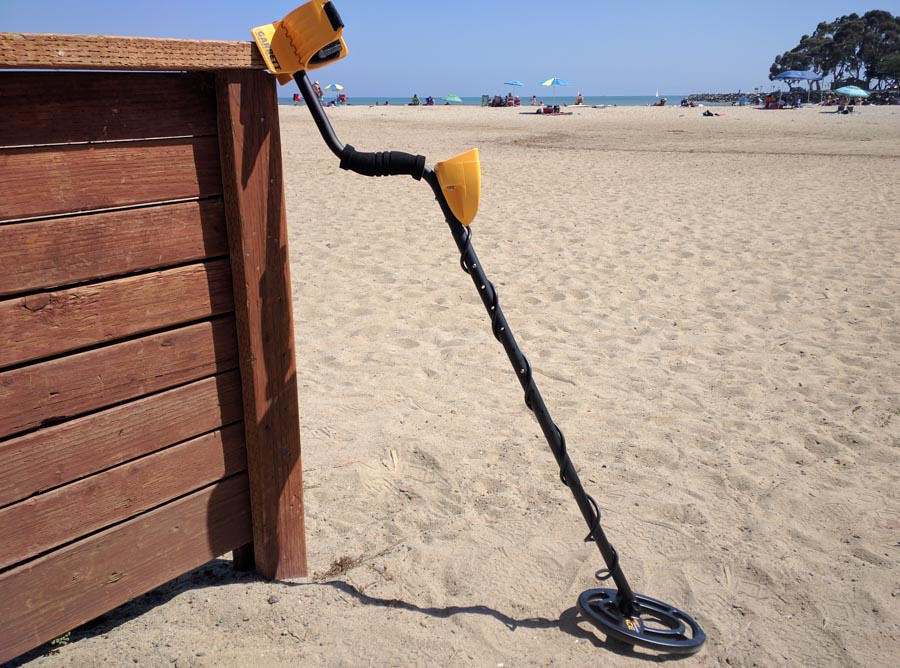
Most Expensive Metal Detector-will I find better things?
As we’ve said luck and fate play a major part in this hobby, but with the way technology is constantly improving, newer improved models are coming out all the time. A lot of your decisions should be based on where you plan to use your metal detector.
Will you be sticking to fields and woods, or do you plan to wander along the beach, searching for washed-up treasures? This is where you need to do your research and this will guide you to the right detector for you, regardless of price.
Metal Detector Brands-A few things to consider when you do buy
As with most things electrical, you should always stick to well known brands. And even if you decide to buy second hand rather than new, to start you off, you should go for established manufacturers such as :
- Minelab,
- Bounty Hunter,
- Tesoro,
- Garrett
- Teknetics
- Internet-based companies such as Amazon, Joan Allen, and Regton.
All of these companies should be top of your list when you are research the best metal detectors for beginners. Always buy from a reputable dealer where you will get some form of guarantee or some comeback, should the machine become faulty.
Metal Detecting Tools-What else you need.
Headphones for Metal Detector
Where as headphones are not an absolute necessity; it’s always a good idea so it can cut out any background noise, allowing you to focus on the tones that will come from your detector. And again for someone starting out, you don’t need to pay a fortune for a pair of headphones, but do make sure you have a set just for detecting.
As with the metal detectors themselves, you will always get what you pay for. The cheaper ones will have an annoying cable that could get in the way, but spend a bit more on a wireless model and as long as you’ve got batteries, you will be a very happy detectorist.
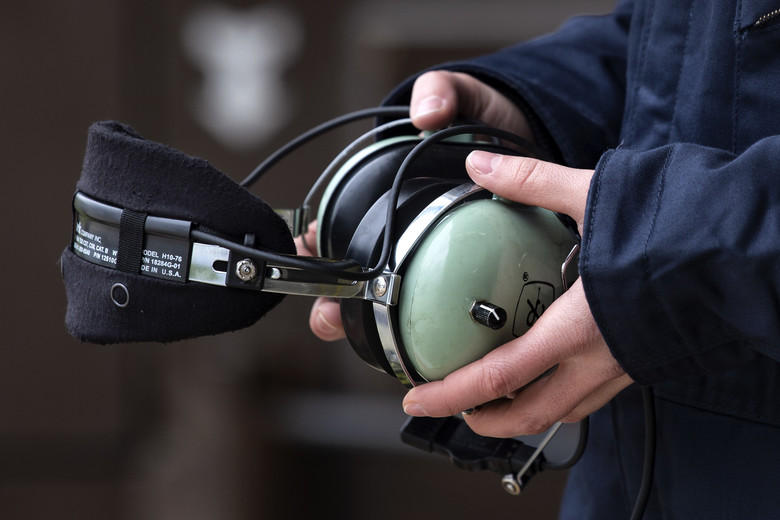
Metal Detecting Tools: Digging.
So when that new shiny machine starts to make all the right noises, you will need to extract whatever caused that strange sound. For this I recommend a small shovel or trowel. Garden Centre ones should be avoided at all costs. Try to get one which is especially made for metal detecting.

A Pin Pointer- A really worthwhile investment.
A pin pointer is an electronic probe. This will help you right from the off. This is a probe-shaped metal detector device, which can help you establish the exact position of your target item. You basically scratch around the hole until it bleeps, so you know exactly where to dig.
This will help you in a couple of ways. It will reduce the amount you have to dig, thus giving you more time to search, and also with less digging, you won’t be so tired at the end of the day. Check out the best pinpointers HERE
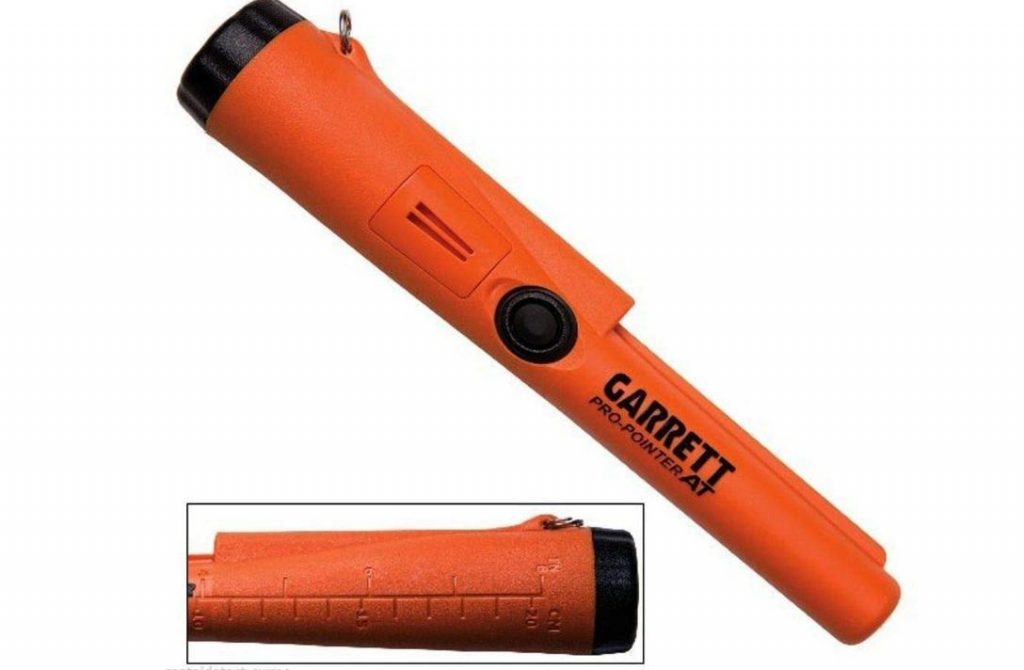
What Do You Wear?
One of the most overlooked areas when detecting is clothing. When you consider that the weather could change at any time, especially here in the UK, then the appropriate attire is crucial. Footwear is also important to get right. You will be walking a lot and over many uneven surfaces, so your footwear should be up to the task.
Word of warning though, do not wear steel toe-capped boots, for obvious reasons. And don’t forget a good sturdy pair of gloves. If you can, buy these from tool outlets, as they get a lot of wear and tear and will also protect you from nasty things like tetanus.
Digging Your Target-Learn to dig a PLUG
So when you have found your target, you need to dig correctly. You need to dig a plug. You don’t want to dig directly down onto the target but go around it. If you imagine a horse shoe shape around the target pinpoint, you then need to cut around only three sides to a depth of around 3 to 4 inches. You will then flip the plug over. Once your search is complete and the hole filled back up, you can then flip the top surface back over again.
Be Prepared!
The very nature of the task will involve you walking along with your head down, for most of the time. This is where a basic first aid kit may come in handy, should you meet a low hanging hawthorn bush. So with all this ‘stuff’ a small backpack would be a welcome addition, so you can carry it all. It also goes without saying that a fully charged phone is crucial, whenever you go metal detecting.
Permission to Metal Detect- Ask the right people
What you will find when you start your journey into this wonderful hobby, is there are a few obstacles to overcome. One of them and probably one of the most frustrating one, is gaining permission to search on a piece of land. Everywhere in the United Kingdom is owned by someone.
Their permission needs to be granted before you can set foot onto that field or plot of land. A little tip here, is to do your research before you approach the landowner, so as to appear professional and serious about the whole thing. Just do a Google search or take a look at YouTube, to find out more about this important step.
Insurance Is a Must
And finally one more thing that you don’t need, but I would advise you get it, is insurance. Public liability gives any land owner peace of mind, when detecting on his land. Also should you leave a gate open and livestock escape, or when digging you hit a pipe, who will pay these costs? And don’t forget to insure all that shiny new equipment you have just bought.
In fact one of the best places to look for insurance relevant to metal detecting, is at MCND. The National Council For Metal Detecting is a government-recognized body, which represents metal detectorists in the UK. They also have great deals on specialist insurance. Check out their website HERE.
Metal Detectors Tips-What to expect when you go metal detecting.
Here I want to give you a few metal detector tips when you first go out. It goes without saying that you are probably bests to go along with someone with a bit of experience in detecting. This will be a big help as you learn the rope and the correct way to go about things. What follows are a few tips to help you along the way:-
- You will find more rubbish than treasure. Be prepared to dig up a lot of old junk. From bottle top, ring pulls and discarded bits of metal. But never give up. The more you search the more chance you have of finding something worthwhile. And when you do you will soon forget about the ring pulls.
- Try to buy the best metal detector your budget will allow. Think how much people spend on their TVs or the latest phone. But a word of warning. If you are not technically minded, don’t buy a detector that requires you to have a degree to operate. Often these top-of-the-range models are not always the best metal detectors for beginners. You may give up before you start. Buy the right one for you and your circumstances. You can always upgrade at a later date.
- Do your local research. Visit local libraries or contact local historians, to find new and exciting places to visit. Join local groups or search Facebook for advice and guidance. Google Earth and Olds Maps Online are also a godsend. Especially important before you ask a landowner permission.
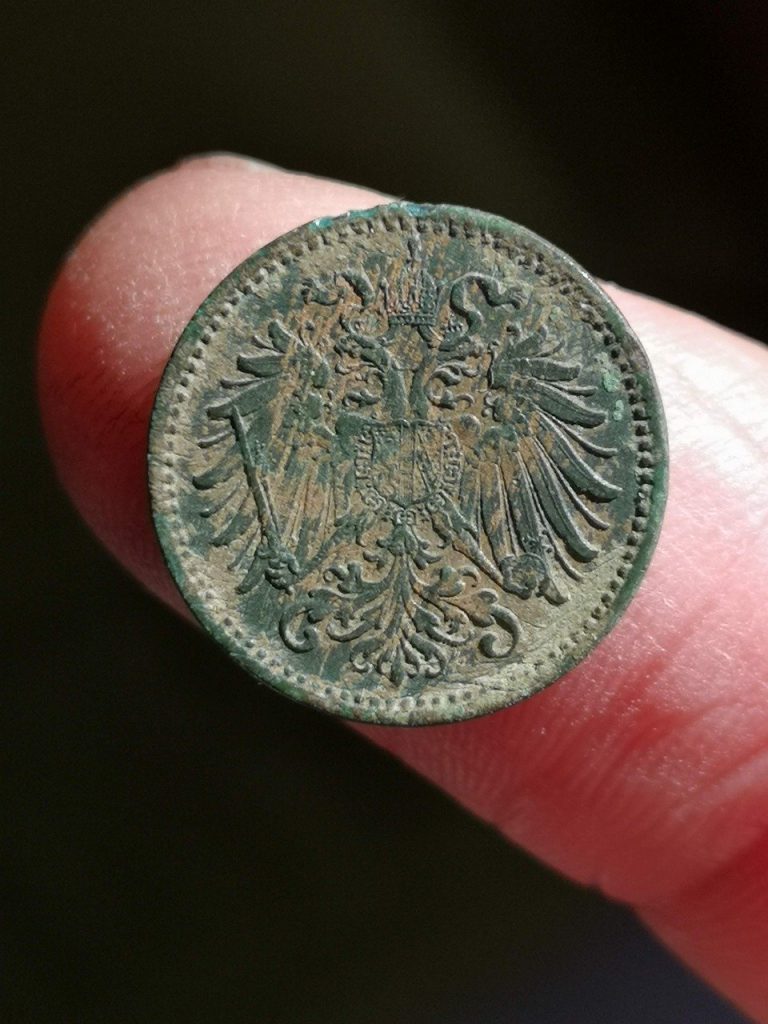
- Start outside your own house. If you have a garden or an area around where you live, it will give you a chance to become familiar with your machine and its settings. Get a partner to bury things for you to find, so you can get used to the different signals you get. If fact many things get lost over the years when gardening. There could be a surprise waiting for you yards away from where you live. Do some tests yourself, bury a coin or a ring (tie some string around it) at different depths and take note how your machine reacts.
- Pray for rain. After a good downpour the wet ground is better suited for conductivity, making it a lot easier for your detector to find that treasure buried much deeper below the surface.
- Respect the land you are on. Always fill in the holes you dig. Learn how to dig a plug. You may want to visit this spot again, as will others, so you don’t want to spoil it for yourself or others.
- Don’t forget your sack. Have a sack or bag you use just for your metal detecting adventures. And put everything you dig up into the bag. That includes the bottle tops and the rubbish. It will be one less phantom signal to worry about in the future, not only for you, should you visit the area again, but for future detectorists.
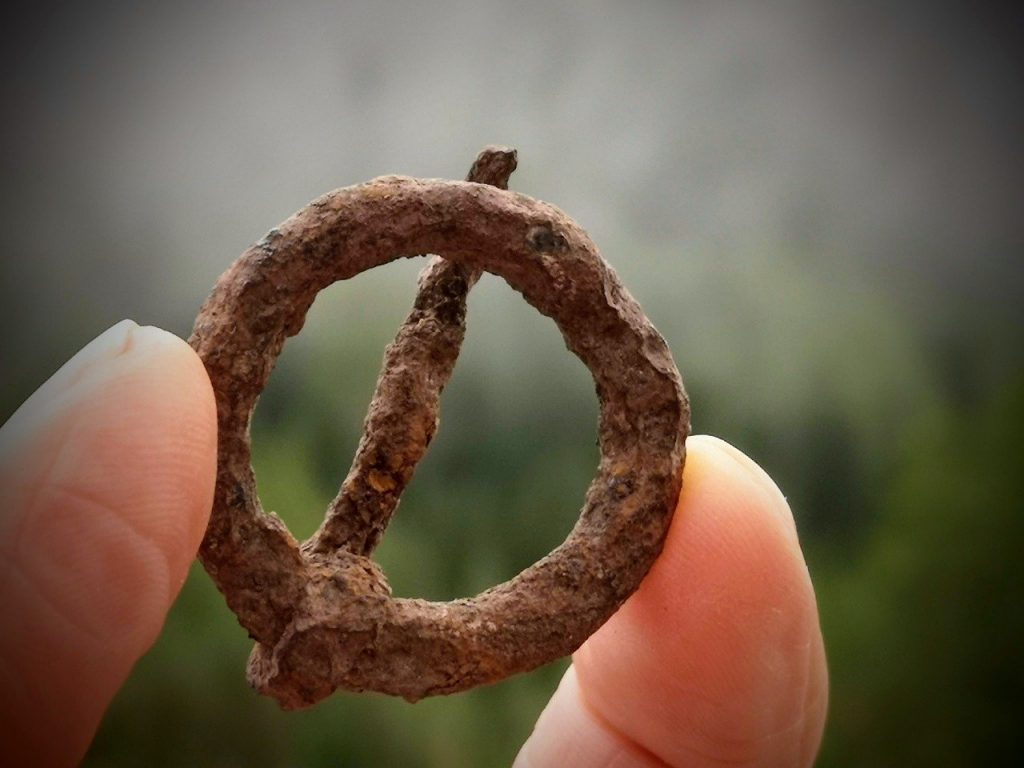
- The times you search are crucial. You are best to search early morning or late in the evening. This is your best chance of avoiding people who will want to know what you are doing. How does it work? Have you found anything? Chatting when you want to be searching is not good. Just keep your head down and carry on.
- Be aware of your sweep pattern. Make sure you always overlap your sweep. This will prevent you from missing any spots which could hold some targets. Another thing to be aware of is to keep your coils close to the ground. Some people, especially when starting have a tendency to lift the coils at the end of a sweep, potentially missing targets.
- Don’t just dig on the strong signals. A common mistake that many make is to discount the faint signals. This could be the Holy Grail (not literally). Don’t skip those weak signals.
- Once you hear a signal, clear the top layer of dirt away before you do anything else. Once the area is clear of debris do another sweep. This will prevent you from digging when the signal came from something on the surface. Thus saving you time and energy.
- If you do find something, don’t move on immediately. Where there is one trinket, there are usually two, or more. Make sure you have a good sweep of the whole area.
- If circumstances allow, get to the beach. The sand is a perfect place for people to lose earrings and valuables. Fingers tend to shrink as they get cold and rings can fall off without the person knowing. And the best part is, that you may even get to reunite someone with a lost heirloom.
- Get to as many local metal detector meet ups as you can. People love to give advice and if you are willing to listen, you can pick up some great knowledge.
- Keep records of your finds. Buy a notebook especially for this purpose. Dates, time, location. Anything which you find, should be recorded in this book.
- When you do dig up your prize, don’t clean it straight away. This could damage the coin or thus reducing its value. Get on the internet or pay a visit to your local club, to get it identified.
- Don’t forget your spares. Always carry spare batteries. Nothing’s worse than being stuck in a field miles from your vehicle and the batteries in your detector or your wireless metal detecting headphones die.
Metal Detecting Clubs-A fountain of knowledge
What better way to learn from years of experience by joining a local metal detecting club. There are some very long-established clubs and organizations. some so popular that is a waiting list to join. But these clubs will always go out of their way to welcome new members.
At these meeting you will find a mine of information ready to be tapped. Here you will get the best advice as to what are the best metal detectors for beginners.
Metal Detector Books & the Internet
So there you have it. Get busy doing your research. Read reviews on the different type of detectors until you find the one which is suitable for your needs. Buy a few metal detector books and read about it as much as you can.
The internet is amazing too, so use it. Search Facebook for local groups or clubs and reach out for advice. You never know you could find a kind soul with a spare detector, so you can dip your toes in the water.
There is so much to learn about this amazing hobby. This is just the start of what I hope will become a real passion. It’s not just a hobby; it’s a way of life.
